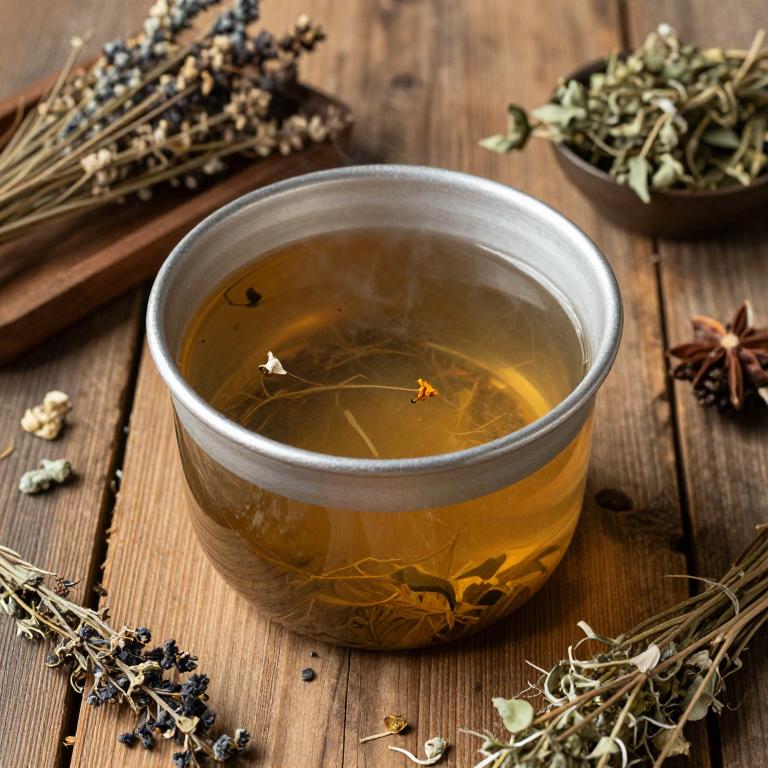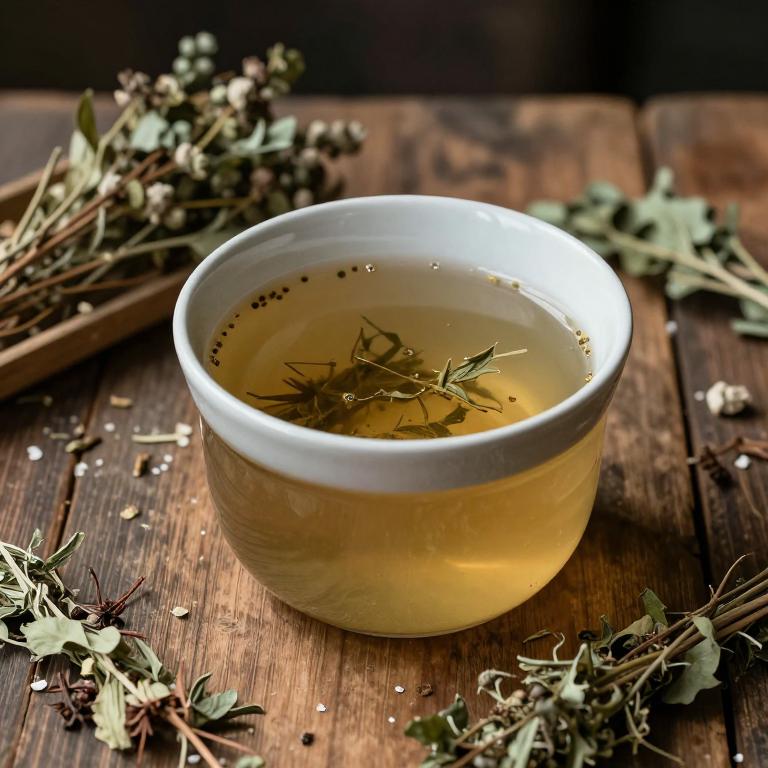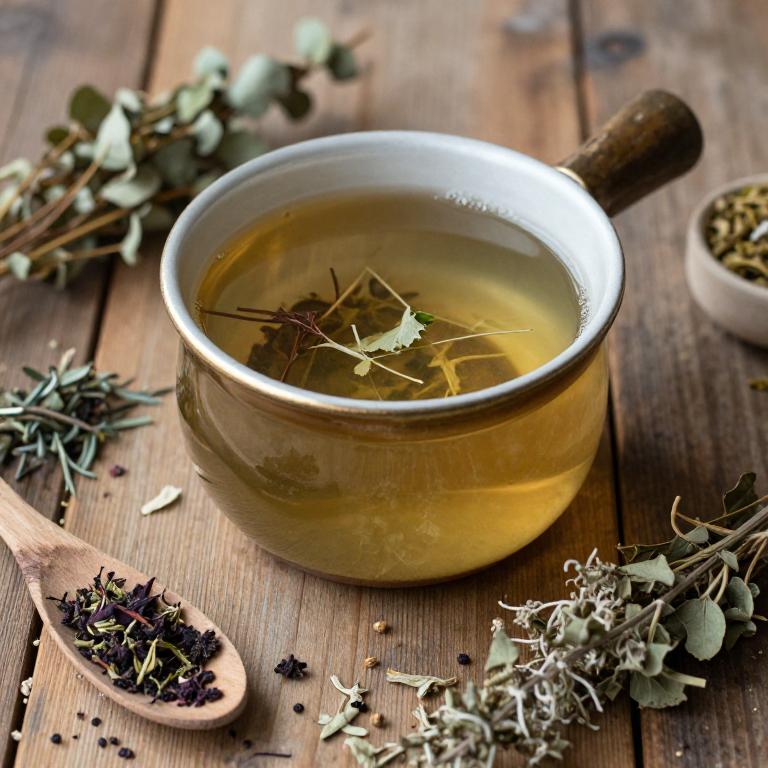10 Best Herbal Decoctions For Oily Hair

Herbal decoctions for oily hair are traditional remedies that use natural ingredients to balance sebum production and promote scalp health.
Common herbs such as neem, aloe vera, and chamomile are often used due to their antimicrobial and soothing properties. To prepare a decoction, these herbs are boiled in water for several minutes, then cooled and applied to the scalp or used as a rinse after shampooing. Regular use can help reduce excess oil, prevent dandruff, and improve overall hair texture.
These natural treatments are generally safe and offer a gentler alternative to chemical-based hair products.
Table of Contents
- 1. Stinging nettle (Urtica dioica)
- 2. St. john's wort (Hypericum perforatum)
- 3. Field horsetail (Equisetum arvense)
- 4. Aloe vera (Aloe barbadensis)
- 5. Rosemary (Rosmarinus officinalis)
- 6. Lemon grass (Cymbopogon citratus)
- 7. Camellia (Camellia sinensis)
- 8. Salvia (Salvia officinalis)
- 9. English lavender (Lavandula angustifolia)
- 10. Melaleuca (Melaleuca alternifolia)
1. Stinging nettle (Urtica dioica)

Urtica dioica, commonly known as stinging nettle, is a versatile herb that has been traditionally used for its potential benefits on hair health.
When prepared as a herbal decoction, it can be used to address issues related to oily hair by balancing sebum production and promoting a healthier scalp environment. The decoction is typically made by simmering dried stinging nettle leaves in water for several minutes, allowing the active compounds to infuse into the liquid. This infusion can then be used as a rinse or applied topically to the scalp to help reduce excess oil and improve overall hair texture.
Regular use of urtica dioica decoctions may support long-term scalp health and contribute to more manageable, less oily hair.
2. St. john's wort (Hypericum perforatum)

Hypericum perforatum, commonly known as St. John's Wort, is a herbal plant that has been traditionally used for its potential therapeutic properties.
While it is more widely recognized for its use in treating mild depression, some studies suggest that its herbal decoctions may also benefit oily hair by regulating sebum production. The active compounds in St. John's Wort, such as hypericin and hyperforin, may help reduce excess oiliness by influencing hormonal balance and inflammatory responses in the scalp. However, it is important to note that the use of St. John's Wort for oily hair should be approached with caution due to its potential interactions with other medications.
As with any herbal remedy, it is advisable to consult a healthcare professional before incorporating it into a hair care routine.
3. Field horsetail (Equisetum arvense)

Equisetum arvense, commonly known as field horsetail, is a herb traditionally used in herbal medicine for its high silica content, which is believed to strengthen hair and scalp health.
Herbal decoctions made from Equisetum arvense are often recommended for oily hair due to their astringent properties that help reduce sebum production and balance scalp oils. To prepare the decoction, the dried herb is boiled in water for about 15 to 20 minutes, then strained and cooled before use. This preparation can be applied as a rinse after shampooing to refresh and clarify the scalp.
While generally safe, it is important to use Equisetum arvense in moderation, as excessive use may lead to dryness or irritation of the scalp.
4. Aloe vera (Aloe barbadensis)

Aloe barbadensis, commonly known as aloe vera, has been traditionally used in herbal remedies for its soothing and nourishing properties.
When prepared as a herbal decoction, aloe barbadensis can be beneficial for individuals with oily hair by helping to regulate sebum production and balance scalp health. The decoction works by gently cleansing the scalp without stripping away natural oils, making it ideal for those with excess oiliness. Its anti-inflammatory and antimicrobial properties also help reduce dandruff and irritation, promoting a healthier scalp environment.
Regular use of aloe barbadensis decoctions can lead to improved hair texture, reduced greasiness, and overall better scalp maintenance.
5. Rosemary (Rosmarinus officinalis)

Rosmarinus officinalis, commonly known as rosemary, is often used in herbal decoctions to address oily hair concerns.
These decoctions are typically prepared by simmering fresh or dried rosemary leaves in water to extract their aromatic and therapeutic properties. The essential oils and antioxidants in rosemary help regulate sebum production, reducing excess oiliness without stripping the scalp of its natural moisture. Its anti-inflammatory and antimicrobial properties also support a healthy scalp environment, promoting balanced hair growth.
Regular use of rosemary decoctions can help manage oily hair while improving overall scalp health and hair texture.
6. Lemon grass (Cymbopogon citratus)

Cymbopogon citratus, commonly known as lemon grass, is a popular herbal remedy used in traditional medicine for its aromatic and therapeutic properties.
When prepared as a herbal decoction, it is often used to address issues related to oily hair by balancing sebum production and promoting scalp health. The decoction is typically made by boiling the fresh or dried leaves of the plant in water, allowing the beneficial compounds to infuse into the liquid. This natural treatment is valued for its ability to soothe the scalp and reduce excess oil without stripping the hair of its natural moisture.
Regular use of lemon grass decoctions can help maintain a healthy, balanced scalp environment, making it a favored option for those seeking natural hair care solutions.
7. Camellia (Camellia sinensis)

Camellia sinensis, commonly known as the tea plant, is the source of various herbal decoctions that have been traditionally used for hair care, including for oily hair.
These decoctions are typically prepared by boiling the leaves or stems of the plant in water to extract their beneficial compounds, such as polyphenols and caffeine. The natural astringent properties of Camellia sinensis decoctions help to reduce excess oil production on the scalp, making them beneficial for individuals with oily hair. Regular use of these decoctions can help balance sebum production and improve overall scalp health.
Additionally, they may also provide antioxidant benefits that promote stronger, healthier hair growth.
8. Salvia (Salvia officinalis)

Salvia officinalis, commonly known as sage, has been traditionally used in herbal medicine for its various therapeutic properties, including its potential benefits for oily hair.
When prepared as a decoction, sage can be used to rinse the scalp, helping to regulate sebum production and reduce excess oiliness. The essential oils and compounds in sage, such as thujone and rosmarinic acid, have antimicrobial and astringent properties that may help control dandruff and maintain a balanced scalp environment. Regular use of sage decoctions can promote a healthier scalp and reduce the appearance of greasy hair without stripping natural oils.
However, it is important to use sage decoctions in moderation and consult a healthcare professional if you have any underlying skin conditions or allergies.
9. English lavender (Lavandula angustifolia)

Lavandula angustifolia, commonly known as English lavender, is often used in herbal decoctions for its soothing and balancing properties.
When prepared as a decoction, lavender can help regulate sebum production, making it particularly beneficial for individuals with oily hair. The essential oils and phytochemicals in lavender possess antimicrobial and anti-inflammatory effects that can reduce scalp irritation and dandruff. To use lavender decoction for oily hair, it is typically diluted with water and applied as a rinse after washing the hair.
Regular use of this natural remedy can promote a healthier scalp environment and contribute to more manageable, balanced hair growth.
10. Melaleuca (Melaleuca alternifolia)

Melaleuca alternifolia, commonly known as tea tree oil, is often used in herbal decoctions for oily hair due to its potent antimicrobial and anti-inflammatory properties.
These decoctions typically involve infusing dried leaves of the plant in hot water to create a soothing rinse that can be applied to the scalp. The natural compounds in tea tree oil help reduce excess sebum production and combat bacterial and fungal growth that contribute to oiliness. Regular use of this herbal decoction can help balance scalp health and reduce dandruff, promoting healthier hair growth.
However, it is important to dilute the oil properly to avoid irritation, as undiluted tea tree oil can be too strong for direct application to the scalp.